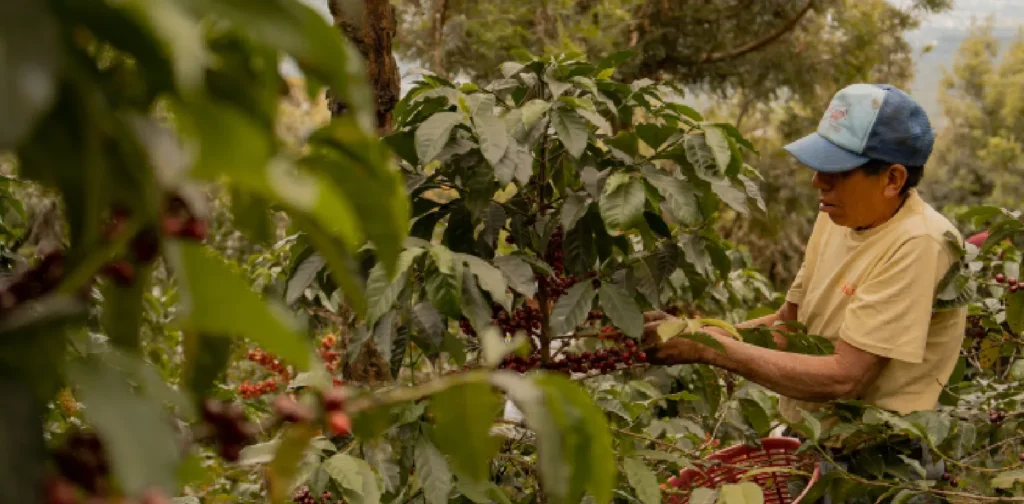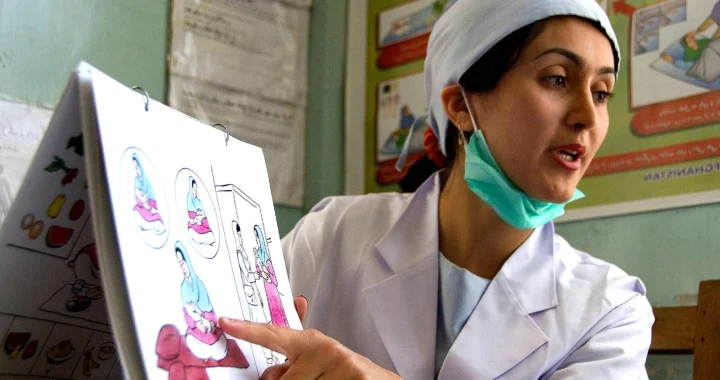Agroforestry for a Climate-Resilient Coffee Industry

Photo: Shelby Murphy Figueroa on Unsplash.
Coffee is among the most consumed beverages in the world. From farming to bean production to drinks, coffee is an important part of many regions’ economies and cultures. However, the industry is highly vulnerable to the impacts of climate change, threatening the productivity, quality, and price of coffee globally. In this light, agroforestry has the potential to support a climate-resilient coffee industry.
Coffee & Climate Change
Coffee production is susceptible to the impacts of the climate crisis. For instance, changing temperatures, shifting rain patterns, and extreme weather events can alter the environment where the crops grow, disrupting coffee productivity and quality. This disruption also brings socio-economic consequences to the actors in the coffee value chain, including farmers.
An estimated 25 million households in over 80 countries depend on the coffee industry for employment and income. Around 80% are smallholder farmers with less than 5 hectares of production area. These farmers are among the most vulnerable actors against climate change due to their limited financial capacity, knowledge, and technology to improve their climate resiliency.
Adopting Agroforestry
Agroforestry has the potential to tackle the issues listed above and advance the climate-resilient coffee industry. The Food and Agriculture Organization (FAO) defines agroforestry as “long-standing practices of integrating trees with crop and animal farming systems.” Agroforestry is a nature-based solution that can benefit smallholder farmers by diversifying their yield and income, enhancing food security, and increasing farm resilience to climate change.
In the coffee industry, adopting agroforestry means planting coffee alongside other trees instead of planting them on big, monoculture land. In practice, farmers must be encouraged and equipped with the knowledge and system to adopt agroforestry for their coffee farms.
An example is the agroforestry adoption workshops and training conducted in Malawi and Uganda by the FAO and the Slow Food Coffee Coalition (SFCC). These workshops involved coffee farmers’ active participation in identifying existing conditions, practices, challenges, and motivations surrounding their coffee farms in light of current climate conditions.
Additionally, the workshops provided training and technical support to enhance farmers’ knowledge and skills and ensure that land tenure systems and policies support long-term agroforestry investments. Over 342 farmers from 13 coffee communities (nearly half of them women) participated in 11 workshops in Malawi, while 118 farmers (35% of whom are women) benefitted from the training in Uganda.
Supporting Climate-Resilient Coffee Industry
With the rising temperature and multiple risks of climate-induced disasters looming, supporting the climate-resilient coffee industry has never been more crucial. Shifting current practices to safeguard farmers and their wellbeing while ensuring environmental conservation must be supported with robust and effective systems. Commitments and participation from governments, businesses, and civil society cannot be understated in ensuring a climate-resilient coffee industry.
Editor: Nazalea Kusuma

Co-create positive impact for people and the planet.
Amidst today’s increasingly complex global challenges, equipping yourself, team, and communities with interdisciplinary and cross-sectoral insights on sustainability-related issues and sustainable development is no longer optional — it is a strategic necessity to stay ahead and stay relevant.

Kresentia Madina
Madina is the Assistant Manager of Stakeholder Engagement at Green Network Asia. She holds a bachelor’s degree in English Studies from Universitas Indonesia. As part of the GNA In-House Team, she supports the organization's multi-stakeholder engagement across international organizations, governments, businesses, civil society, and grassroots communities through digital publications, events, capacity building, and research.


 Looking into the Global Midwife Shortage
Looking into the Global Midwife Shortage  Reframing Governance in the Era of Water Bankruptcy
Reframing Governance in the Era of Water Bankruptcy  Strengthening Resilience amid Growing Dependence on Space Infrastructure
Strengthening Resilience amid Growing Dependence on Space Infrastructure  Indian Gig Workers Push Back Against 10-Minute Delivery Service Strain
Indian Gig Workers Push Back Against 10-Minute Delivery Service Strain  Call for Governance: Grassroots Initiatives Look to Scale Efforts to Conserve Depleting Groundwater
Call for Governance: Grassroots Initiatives Look to Scale Efforts to Conserve Depleting Groundwater  Integrating Environment, Climate Change, and Sustainability Issues into Education Systems
Integrating Environment, Climate Change, and Sustainability Issues into Education Systems